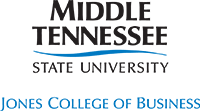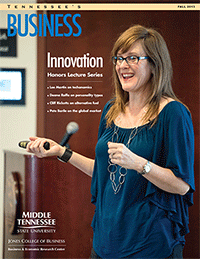Discovering Your Leadership Strengths
|
Self-awareness is recognized as a key attribute in leadership effectiveness. As leaders, it is important that we know and understand our personality, strengths, values, motives, and goals in order to cultivate the authenticity and clarity that make us successful and innovative. When we identify and nurture our strongest qualities, we maximize our potential. Engaging in a continuous search for self-knowledge is considered a hallmark of authentic leadership. Authentic leadership occurs when leaders know who they are, what unique talents they have to offer; and how to use these talents to make a contribution to others. Having an awareness of our personality type gives us insights into our unique talents or abilities that are best suited for certain leadership situations. For example, leaders with extraverted personalities are well suited for positions that require high-energy social interaction, while introverted leaders can maximize their strengths in positions that require a lot of quiet reflection and contemplation. It is important to note that there is leadership potential in all personality types because different leadership situations require different types of personalities or strengths. For more than four decades, Gallup has been studying the most effective leaders and found they are aware of their strengths and maximize them in the roles that best suit them. A strength is the "ability to provide consistent, near-perfect performance in a given activity." Gallup's research shows that top achievers do not spend their time balancing out or shoring up their weaknesses but have a deep understanding of the strengths they bring to the table and then lead from those strengths. Because everyone leads in a different way and has unique strengths to offer, there is no definitive list of traits that describes all leaders. Leaders should not ignore weaknesses but manage them by building support systems or finding partners whose strengths complement theirs. It is important to note that while leaders do not need to be well-rounded, teams should be so that a variety of strengths are represented and put to use.
We know we are using our leadership strengths when we experience what Csikszentmihalyi calls "flow," that state in which we are fully immersed in an activity, energized and involved. In that state we may lose sense of time and even forget to eat. We feel that we're "in the zone" and the activity is effortless and intrinsically rewarding. Our performance is stellar yet does not feel like work. Flow also contributes to creative processes that foster innovation. When we experience flow, we are working through our strengths. Then effective leadership often naturally emerges. How can we learn more about our unique personalities and strengths? Many inventories for personal leadership development can promote deeper understanding of one's personality or strengths: the Myers-Briggs Type Indicator (MBTI), Keirsey Temperament Sorter, Hogan Personality Inventory, and Clifton StrengthsFinder. These tools, not intended to label or pigeonhole but useful for understanding ourselves and those around us at work or in other environments, give insights about our preferences, natural tendencies, or patterns of behavior. Ultimately we must respect and understand differences in others and modify our behaviors to accommodate them. Leadership isn't just something we do. It is a process of self-discovery that involves self-reflection, introspection, and self-knowledge. Authentic leadership results in a thoughtful understanding of ourselves, the way we prefer to lead, our leadership strengths, and our impact on others. By developing a genuine awareness of who we are as leaders and increasing understanding of our strengths, we can acquire a deeper personal understanding of ourselves, sharpen our perception of the way we prefer to lead, and leverage the impact we can have on others, our organizations, and our communities. * Deana Raffo is an assistant professor, Department of Management and Marketing, Jones College of Business, MTSU. |
|
 Deana Raffo stresses the importance of self-knowledge in leadership.
Deana Raffo stresses the importance of self-knowledge in leadership.

